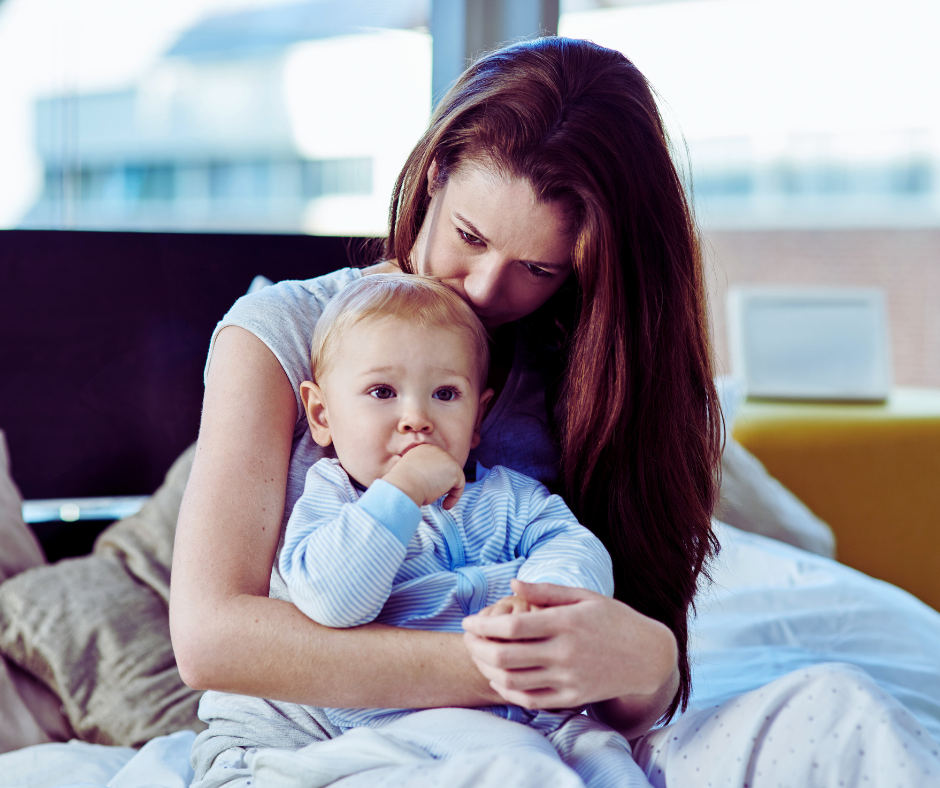What to Know About Postpartum Psychosis

By the time you reach the end of your first pregnancy, you probably know about postpartum depression, maybe postpartum anxiety, but what about postpartum psychosis?
Postpartum psychosis, or PPP, isn’t discussed nearly as frequently as postpartum depression (PPD) and anxiety (PPA), likely because it’s so much rarer. While around one in seven women will experience PPD and 20% will have PPA, experts estimate that PPP will affect somewhere around one to two out of every 1,000 postpartum women.
But it’s important to note that postpartum psychosis, while extremely rare, is also extremely dangerous. It’s considered a medical emergency, in part because women with PPP are much more likely than other moms to harm themselves or their babies or even die by suicide. If you believe you or someone you know might be in danger of harming anyone, please call 911 immediately.
What is postpartum psychosis?
Postpartum psychosis, like postpartum anxiety and depression, is a mental health condition that affects women after they give birth – it can also develop during pregnancy. It usually begins in the first few days after the birth, but it can come on anytime during the first six weeks after delivery.

Symptoms of PPP
Unlike PPD and PPA, the main symptoms of PPP are unusual enough to be immediately noticeable. These two symptoms are hallucinations and delusions.
Hallucinations are sensory experiences that feel real to your brain but aren’t accurate in outside reality. They can be visual or auditory, and it’s often impossible to tell that they’re not real until you’re corrected by someone else in the room.
Delusions, on the other hand, are strongly-held beliefs that don’t match reality. Some women, for example, will insist that they don’t have a baby, even as their partner is showing the baby to them. Others might believe that someone else is controlling their body or that they’re under surveillance or threat from another person.
Other, less obvious symptoms include insomnia, confusion, disorganization, irritability, and depression.

How to manage it
Because it’s a medical emergency, postpartum psychosis can’t and shouldn’t be managed through lifestyle changes or self-care – it requires the treatment of qualified medical professionals and ongoing supervision.
In most cases, PPP is treated through a combination of medication and psychotherapy, often in an inpatient setting where care and monitoring can be provided around the clock – that’s why it’s important to go to the emergency room if you start exhibiting these symptoms. In very severe cases, due to the distortion of reality the patient experiences, it may be necessary for a loved one to take the patient to the hospital to be assessed.
The bottom line about postpartum psychosis
Postpartum psychosis is a medical emergency and requires serious intervention. The good news is that it’s also extremely rare, so it’s likely not something you’ll need to worry about – we just want to make sure you know it exists and understand the signs. If you have a history of mental illness, especially bipolar disorder or schizophrenia, your risk is higher, so make sure your providers are aware of your history and have a plan in place.
Postpartum psychosis is beyond the scope of what we handle at Prospera, but if you’re experiencing symptoms of postpartum depression, anxiety, or anger, we can help. At Prospera, our mental health coaches are trained in cognitive behavioral therapy (CBT) techniques, which are super effective for anxiety and depression.
If you could use some support (and who couldn’t?), why not give us a try? Book your free consultation today.
Content reviewed by Dr. Sarah Stanger, Clinical Psychologist
Anne Godenham is a writer and editor with a passion for mental health awareness and accessibility


